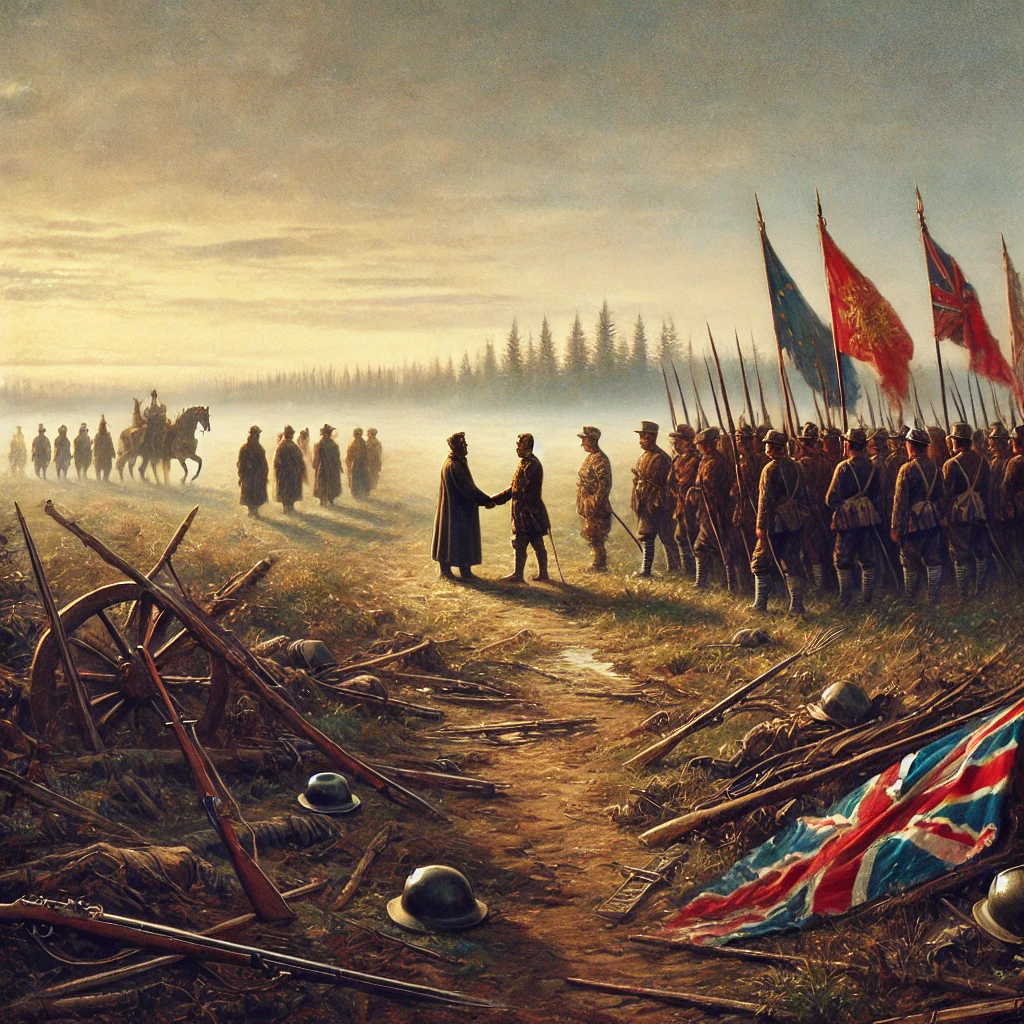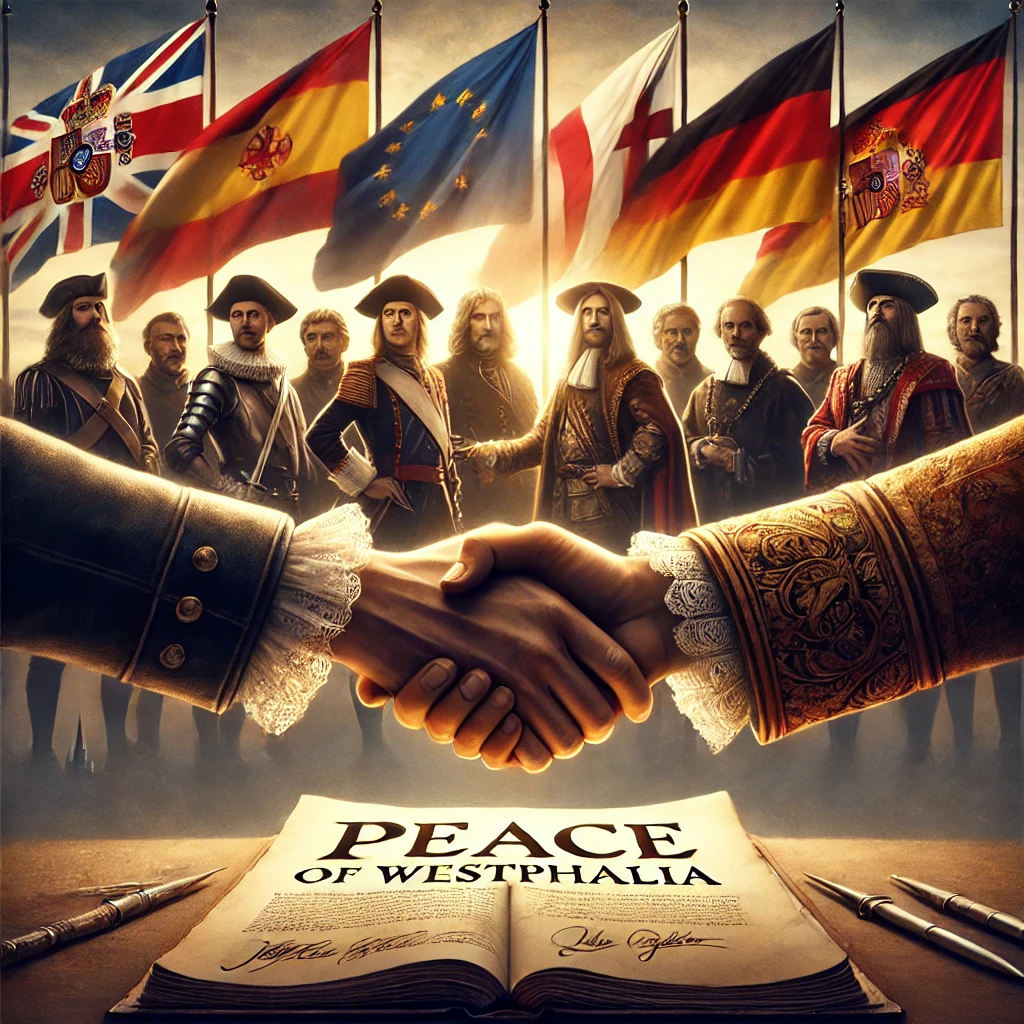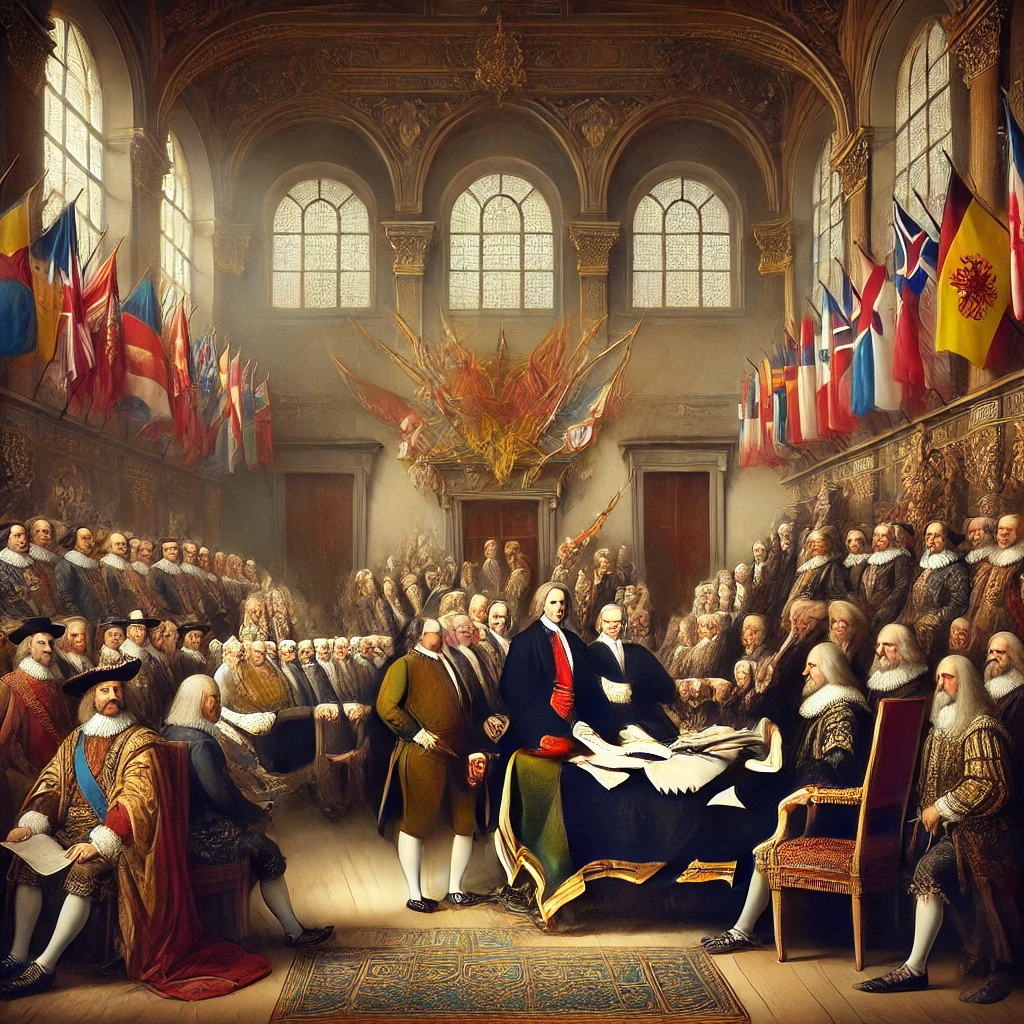On October 24, 1648, the Peace of Westphalia was signed, marking the end of the Eighty Years’ War between Spain and the Dutch Republic, as well as the German phase of the Thirty Years’ War. This monumental treaty not only brought a close to decades of brutal conflict in Europe but also established a new framework for international relations that would influence diplomatic practices for centuries to come. The Peace of Westphalia is often regarded as a foundational moment in the development of the modern state system.

The Context of the Wars
The Eighty Years’ War (1568-1648) was primarily a struggle for independence by the Dutch provinces against Spanish rule. It was fueled by religious tensions, economic competition, and the desire for self-determination. The conflict saw the rise of the Dutch Republic as a formidable power in Europe, setting the stage for its eventual recognition as an independent nation.
Simultaneously, the Thirty Years’ War (1618-1648) was a complex conflict involving various European powers, largely rooted in religious disputes between Catholic and Protestant states. It devastated much of Central Europe, leading to significant loss of life and destruction. As these wars dragged on, the need for a comprehensive peace agreement became increasingly urgent, prompting diplomatic efforts to bring an end to the hostilities.

The Negotiation Process
The negotiations for the Peace of Westphalia began in 1644 and involved representatives from multiple nations, including France, Sweden, Spain, and various German states. The peace talks were held in the cities of Münster and Osnabrück, and the process was complex, reflecting the diverse interests of the parties involved. The negotiations emphasized diplomacy and compromise, setting a precedent for future international treaties.
One of the key principles established during the negotiations was the idea of state sovereignty. The concept recognized the rights of states to govern themselves without external interference, laying the groundwork for the modern notion of nation-states. The agreements reached at Westphalia not only addressed territorial disputes but also sought to promote religious tolerance and coexistence among different faiths.
The Outcomes of the Peace of Westphalia
The Peace of Westphalia resulted in significant territorial and political changes in Europe. The Dutch Republic gained formal independence from Spain, solidifying its status as a major maritime power. Additionally, the treaties recognized the sovereignty of various German states, effectively decentralizing power within the Holy Roman Empire and granting greater autonomy to local rulers.

The peace settlement also addressed religious conflicts by allowing Protestant and Catholic states to coexist, marking a significant step toward religious tolerance in Europe. The agreements established the principle of “cuius regio, eius religio,” meaning that the ruler of a region could determine its religion. This principle laid the groundwork for a more pluralistic society and influenced future discussions on religious freedom.
The Legacy of the Peace of Westphalia
The Peace of Westphalia is often cited as a critical turning point in international relations. It shifted the focus from dynastic and religious conflicts to the idea of state sovereignty and territorial integrity, laying the foundation for the modern system of nation-states. The treaties established a diplomatic framework that emphasized negotiation and cooperation among states, which remains relevant in contemporary international relations.
Furthermore, the principles of the Peace of Westphalia have continued to influence global politics. The concepts of sovereignty, non-interference, and the importance of diplomatic dialogue are central to the functioning of international organizations and treaties today. The legacy of the Peace of Westphalia serves as a reminder of the importance of diplomacy in resolving conflicts and maintaining peace.
The signing of the Peace of Westphalia on October 24, 1648, marked a significant moment in European history, bringing an end to the Eighty Years’ War and the Thirty Years’ War. The treaties not only resolved immediate conflicts but also established fundamental principles of state sovereignty and religious tolerance that would shape the political landscape for centuries to come. As we reflect on this pivotal event, we recognize its lasting impact on international relations and the evolution of the modern state system, highlighting the enduring importance of diplomacy in fostering peace and cooperation among nations. The Peace of Westphalia remains a testament to the power of negotiation and compromise in the pursuit of a more harmonious world.
